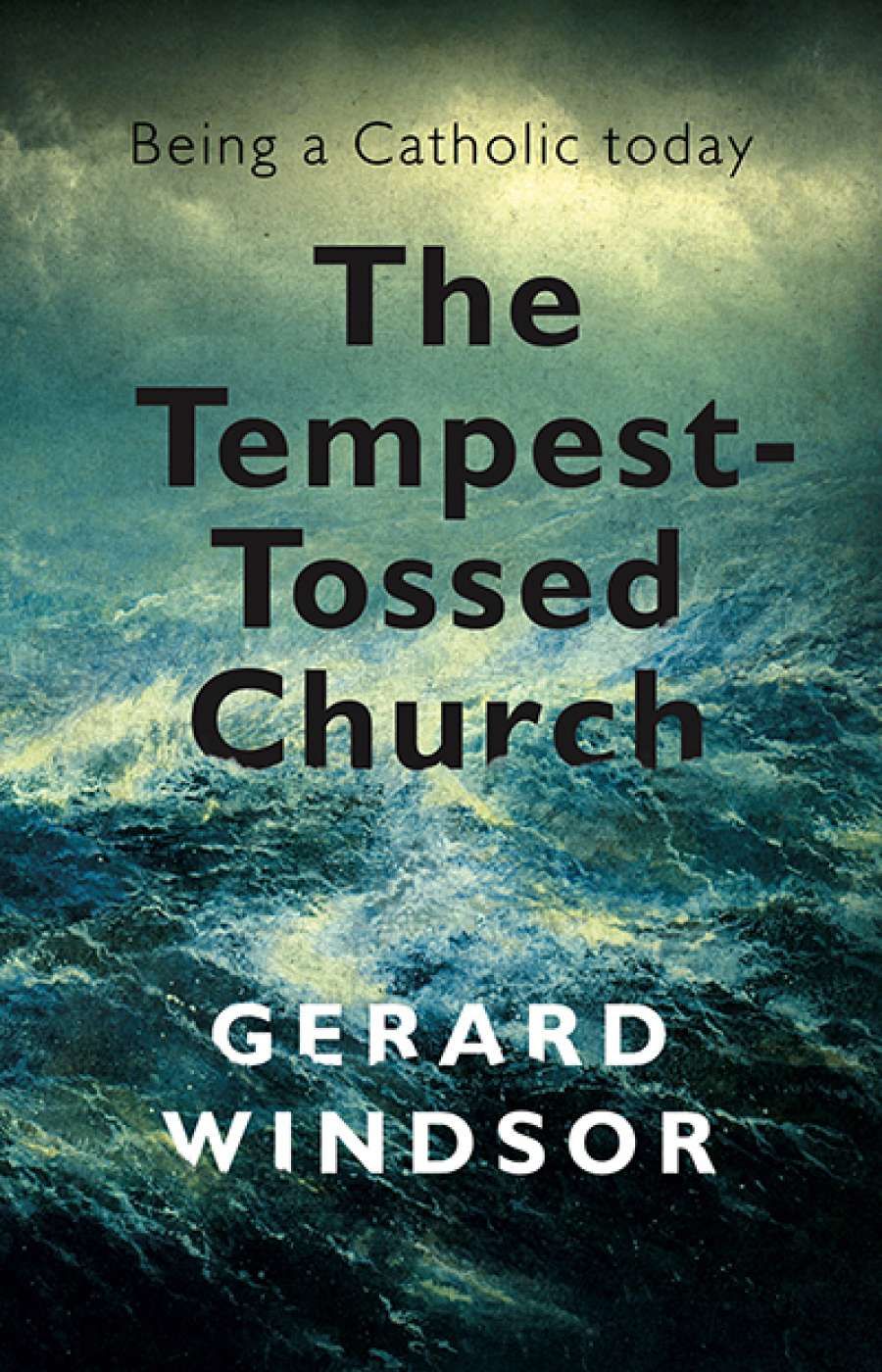
- Free Article: No
- Contents Category: Religion
- Custom Article Title: Michael McGirr reviews 'The Tempest-Tossed Church: Being a Catholic today' by Gerard Windsor
- Book 1 Title: The Tempest-Tossed Church
- Book 1 Subtitle: Being a Catholic today
- Book 1 Biblio: NewSouth $29.99 pb, 250 pp, 9781742235318
Gerard Windsor makes an energetic and searching attempt to provide an intelligent response to the question of why anybody would continue to bother with the Catholic Church. The Tempest-Tossed Church is an honest and heartfelt book that is prepared to work at deep questions with humility. Windsor draws on a great deal of personal experience, ranging from chance encounters with neighbours to a wide-ranging interest in philosophers such as the Canadian Bernard Lonergan. This is not a book of aggressive apologetics. Nor is it a polemic in favour of Catholicism, although it does have some barbed wit for people such as Don Watson who treat religion in a dismissive manner. Often, however, the reader gets the impression that the person Windsor is most trying to reassure is himself. The Tempest-Tossed Church is witness to a lifelong journey. That is what makes it so engaging. It is a mature book, evidence of a life lived in appreciation of both a profound mystery and the difficulty of attaching words to that mystery. There were many occasions on which I breathed a sigh of relief that somebody was prepared to say many of the things that Windsor does. This is a book about being Catholic in Australia that has precious little interest in George Pell. It has far more interesting people to talk about.
One of those people is Joe O’Mara, a Jesuit priest who endured much ill-health before he died in 2016. Windsor says he ‘can respect, even admire, people who are said to have a love affair with God’. O’Mara was one of these. Windsor is reluctant to make the same claim for himself, which is possibly why this book invests so heavily in figures from every corner of history, such as the poet George Herbert, who find their faith a matter that transcends the rigid categories of rational, irrational and even non-rational. George Herbert made a huge impact on the philosopher Simone Weil, moving Weil from an unduly cerebral approach to life into something more mystical. Windsor seems to look at people who make that journey with a kind of longing. He is wonderful at explaining what Karen Armstrong has called ‘the case for God’. He says, for example, ‘the pattern of our living is to grow, to push beyond the initial person we are, to transcend the limited man or woman we are so conscious of being, to expand our horizons and to do so lifelong’. For Windsor, this mundane living brings us to ‘intimations of the Divine’. He continues: ‘I think it’s plausible to believe that there’s some all intelligence, all goodness whom we call God. And Jesus Christ, in some way, is that person. That in summary is the logic of whatever faith I have.’
 Gerard Windsor
Gerard Windsor
There is a tentativeness in these words that encapsulates the whole process of this book. Windsor is the first to admit that he is inclined to default to logic, and, on many occasions, logic serves him well. But then he meets the ailing O’Mara, who wants to talk about ‘the good Lord’, and Windsor feels like a child looking at a window full of goodies he can’t quite reach. I know exactly what he means. I also happened to visit O’Mara in his nursing home shortly before he died. Joe told me that he was having ‘a wonderful death’, just as he had had ‘a wonderful life’. He promised that he would pray for my kids ‘wherever I am’. I went back to the car and cried, overcome by the humility of a man in love with God. Joe never made the news in his life.
This book does have its limitations. Its claim that the God described in what Christians call the Old Testament ‘is not a rich and complex personality’ is hard to fathom; I would see The Qur’an in very different terms from those Windsor describes. But this book is full of people like Joe O’Mara. Their names are Augustine and Newman and Stanley Spencer and Caravaggio and Tom Daly and Teresa of Avila and many more besides. They include a Fijian mother of six, Louisa, who cared for Windsor’s mother as she was dying. Windsor has the supreme good sense to listen to all these messengers with grace and openness. I have seldom been as grateful for a book.


Comments powered by CComment